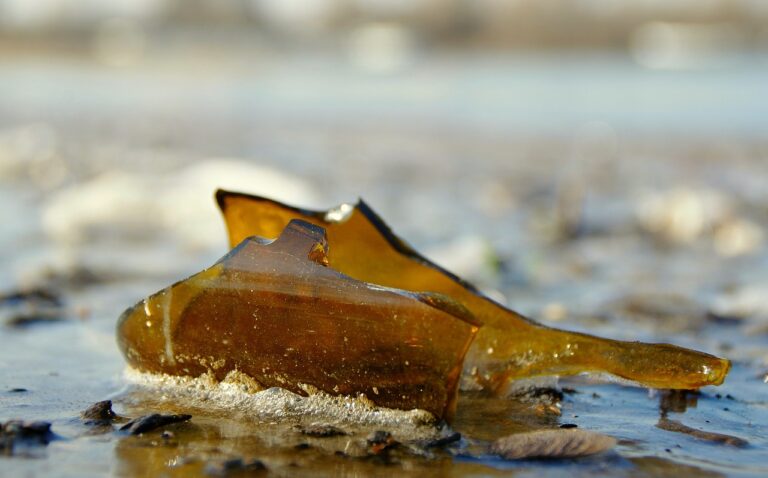Glass is a substance that is present in all aspects of our lives; it is utilized in construction. The versatility of this material is further enhanced by its inert and long-lasting properties.
However, knowing the decomposition time of glasses is critical when considering its effects on the environment. In this article, we’ll look into the decomposition process of glasses, the factors influencing its breakdown in the environment and sustainable solutions.
Table of Contents
Is glass biodegradable?
One of the glass’s most appealing properties is that it is neither reactive nor inert. In contrast to more conventional biodegradable organic waste products like paper or food scraps, it does not break down naturally. This is due to the fact that microbes normally break down organic matter into simpler, naturally occurring chemicals during biodegradation. Glass does not contain any organic chemicals that microbes normally seek out to break down because it is inorganic.
Just because glass is a common material does not mean it does not have any effect on the environment. On the other hand, it can be broken down by light, which is a distinct process from biodegradation. Glasses can become brittle and shatter into smaller pieces after prolonged exposure to sunshine. Waste glasses from the outdoors is especially susceptible to this process.
How glass decomposes
Glass, in contrast to organic materials, does not break down by biological processes but rather through a distinct method. Silica, soda ash, and limestone are the main components of glasses, and they are all chemically stable. Thanks to its inherent stability, glasses can withstand the effects of air, water, and microbes without deteriorating. The physical weathering of glass prevents it from disintegrating into its component parts.
The mechanical processes that comprise physical weathering cause materials to deteriorate over time. Wear and tear on glasses can occur due to abrasion, erosion, and pressures caused by changes in temperature. Its surfaces develop tiny fissures and cracks as a result of prolonged exposure to environmental factors. Although this process changes the way the glass looks, it does not actually break down the material.
How long it takes glass to decompose
The durability of glasses in environmental settings is both a benefit and a drawback. As a result of its resilience, glass goods have a lengthy lifespan. However, when compared to other materials, it takes an extraordinarily long period to degrade.
Under landfill circumstances, with minimal environmental considerations, glass bottles and containers can last for thousands of years without deteriorating much.
Read also: Glass recycling, the ways it can be reused
Factors affecting its decomposition
Glass breaks down as a result of a variety of different factors. There are a variety of factors that come into play, such as the thickness of the glass, its exposure to external factors, and the presence of pollutants.
In spite of the fact that mechanical stress, temperature fluctuations, and humidity can speed up the process of thinner glasses breaking down, there are other factors that can slow it down.
It is a significant instrument for decreasing environmental impact because the manufacture of recycled glasses requires less energy and fewer raw materials than non-recycled glass does.
Environmental impact of glass decomposition
Glass does not react with other substances and does not decompose into harmful substances; yet, the fact that it can remain in the environment for a significant amount of time is cause for concern.
As a result of glass-garbage piling up in landfills, there are issues with waste management and space depletion that affect the environment. Because the manufacturing process for new glasses requires a significant amount of energy, it is also a contribution to carbon emissions.
In order to implement practices that are sustainable, it is necessary to have a solid understanding of the impact that you have on the environment.
Recycling as a sustainable solution
Glass is an extremely recyclable material, despite the fact that it does not biodegrade particularly quickly. The recycling of glass significantly reduces the impact that it has on the environment because it helps to conserve both resources and energy. The process of recycling glass involves melting it down to create new products, which helps to reduce the demand for virgin raw materials.
It is essential to encourage the recycling of glass-items in order to help mitigate the adverse effects that discarded glass has on the environment. It is possible for members of the general public to contribute by sorting recyclables according to glasses and placing them in specially designated recycling containers.
Read also: Upcycling, definition and the difference with recycling












